Could legal homeless campgrounds work in Salt Lake City? Denver might have an answer.
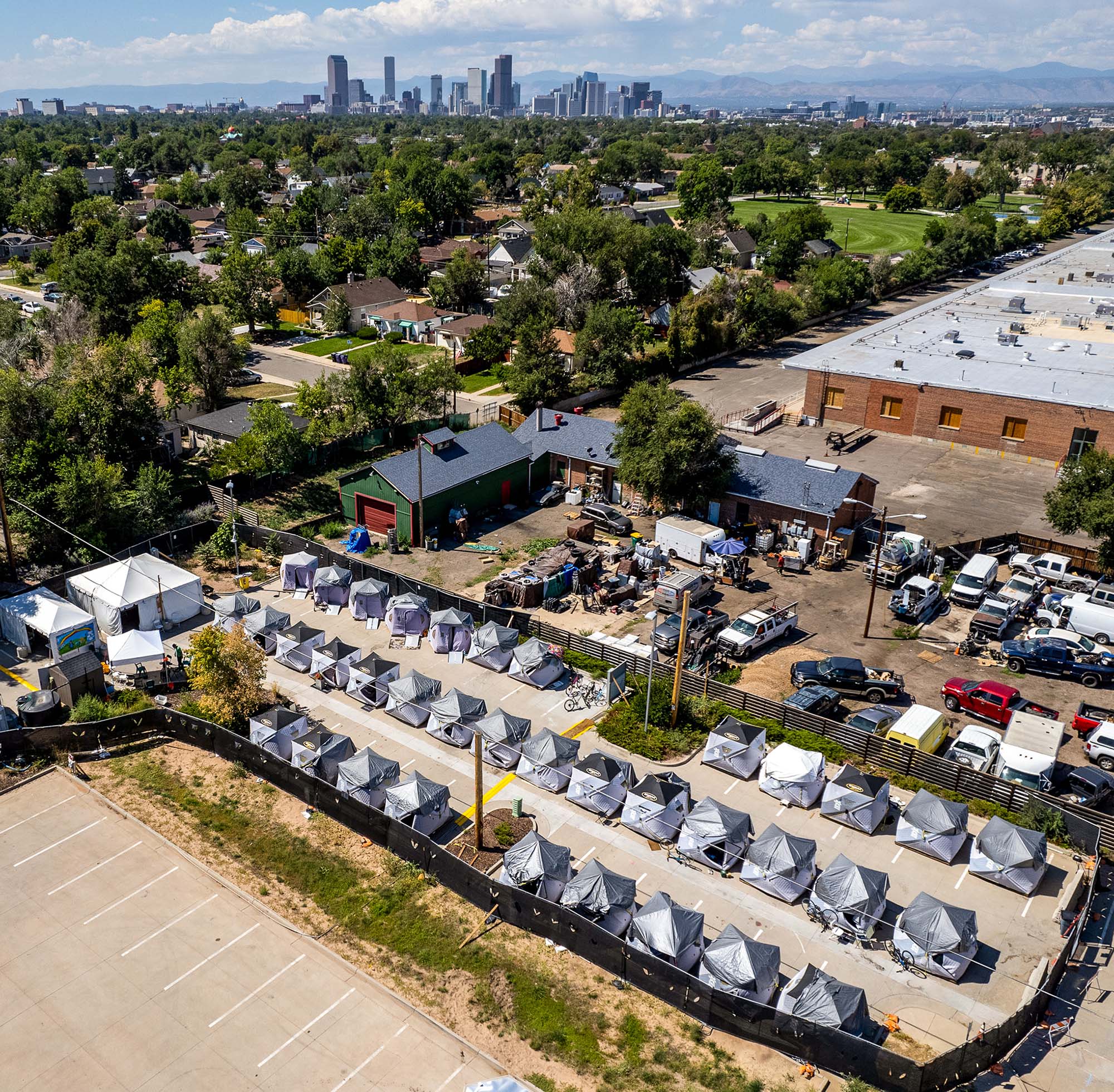
Rick Egan and Blake Apgar | The Salt Lake Tribune
Could legal homeless campgrounds be a policy fix to the proliferation of makeshift tent sites across Salt Lake City?
Some policymakers, advocacy groups and candidates for office think so, but the proposal still faces political headwinds.
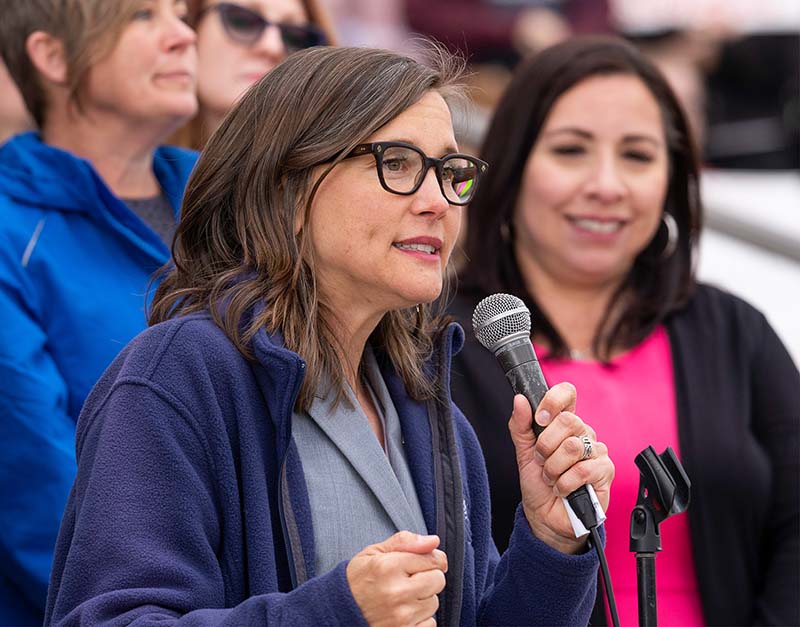
Salt Lake City Mayor Erin Mendenhall says the campgrounds could be a useful tool as housing availability and shelter space dwindle but prefers the state and county take the lead on getting it done.
While Salt Lake County Mayor Jenny Wilson says officials in her administration are in the early stages of exploring a legal camp, there doesn’t appear to be much appetite for it at the state level. Utah homelessness czar Wayne Niederhauser and his Office of Homeless Services oppose the notion.
But what do these legalized campgrounds actually look like? What do they offer? And how do they work?
We checked one out in Denver this year. This is what we saw.
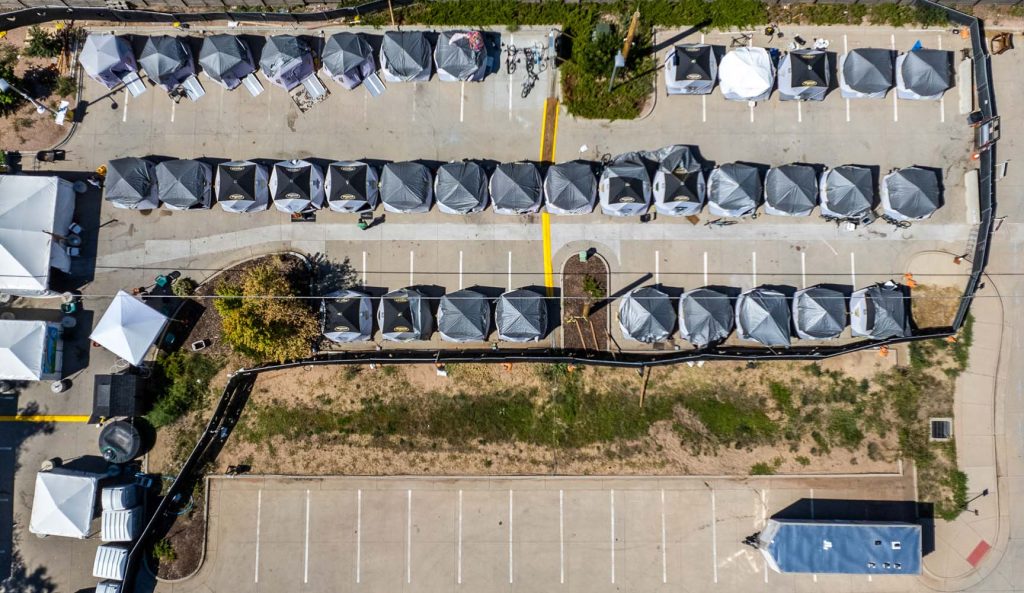
The nonprofit Colorado Village Collaborative operates a program called Safe Outdoor Spaces in the Mile High City. It supplies a clean, safe area for Coloradans experiencing homelessness to leave their things and get a night’s sleep.
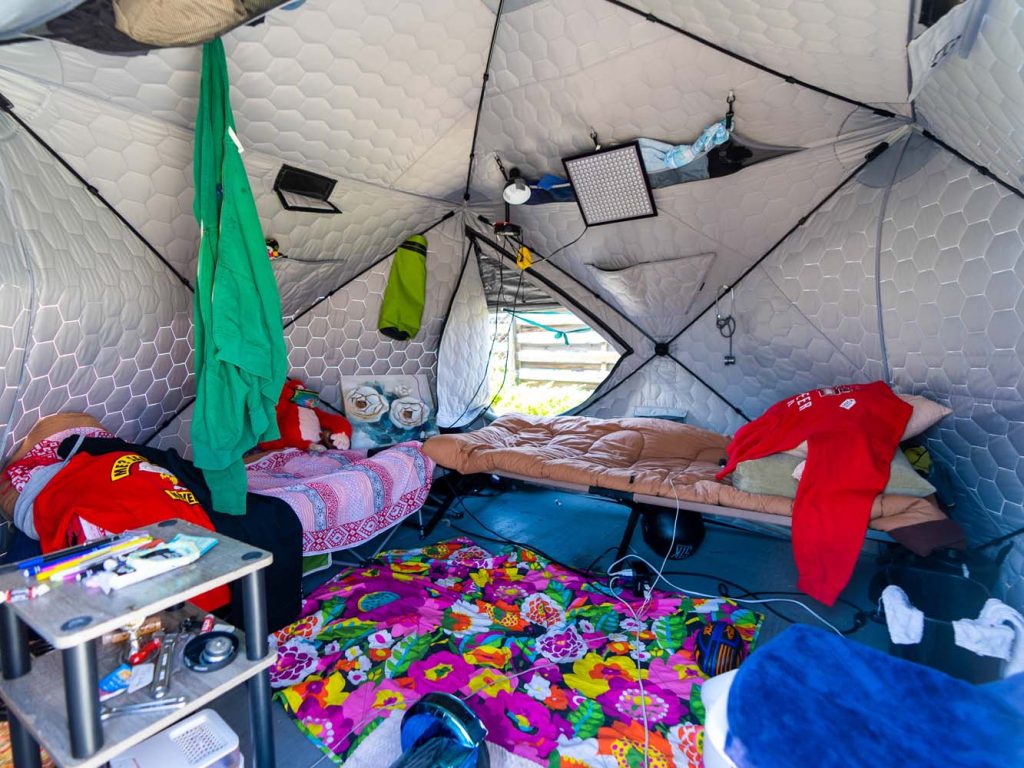
The idea is to provide a dignified alternative to sleeping on the streets. The program, a partnership between the nonprofit and Denver, serves about 150 people across three temporary campsites. This year, the program had a budget of about $5 million.
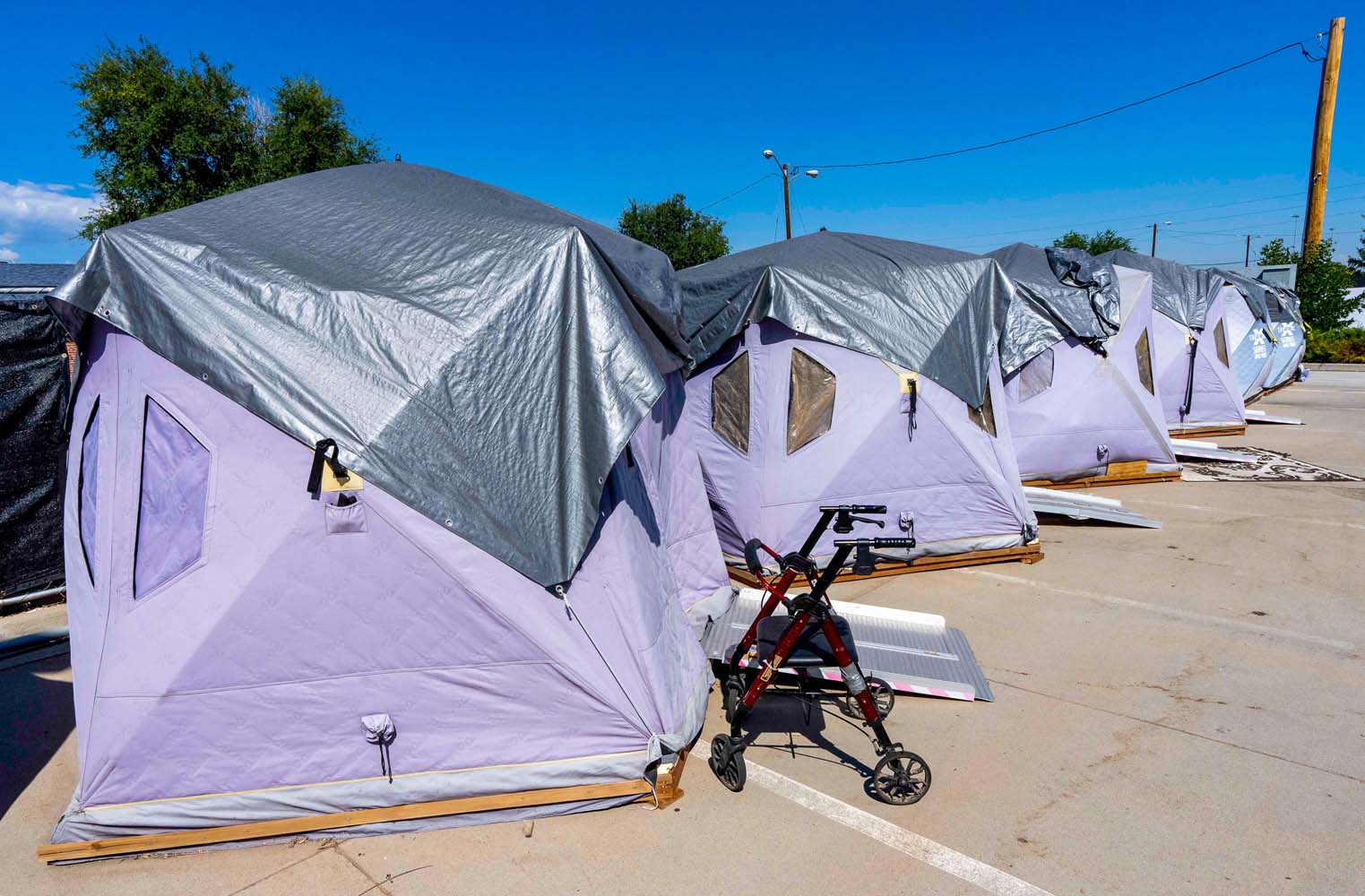
Residents live in ice-fishing tents.
The shelters are pitched on raised pallets to keep residents off the ground. Referrals are required to live in one of the Safe Outdoor Spaces, and once residents move in, they have access to supportive staff and other resources to find more permanent housing.
Safe Outdoor Spaces opened in response to the COVID-19 pandemic, which complicated communal shelter settings as physical distancing and other health protocols became concerns. The campgrounds continue to be important, Colorado Village Collaborative spokesperson Jennifer Forker says, because they offer more flexibility than shelters. There’s no requirement to leave the community during the day.
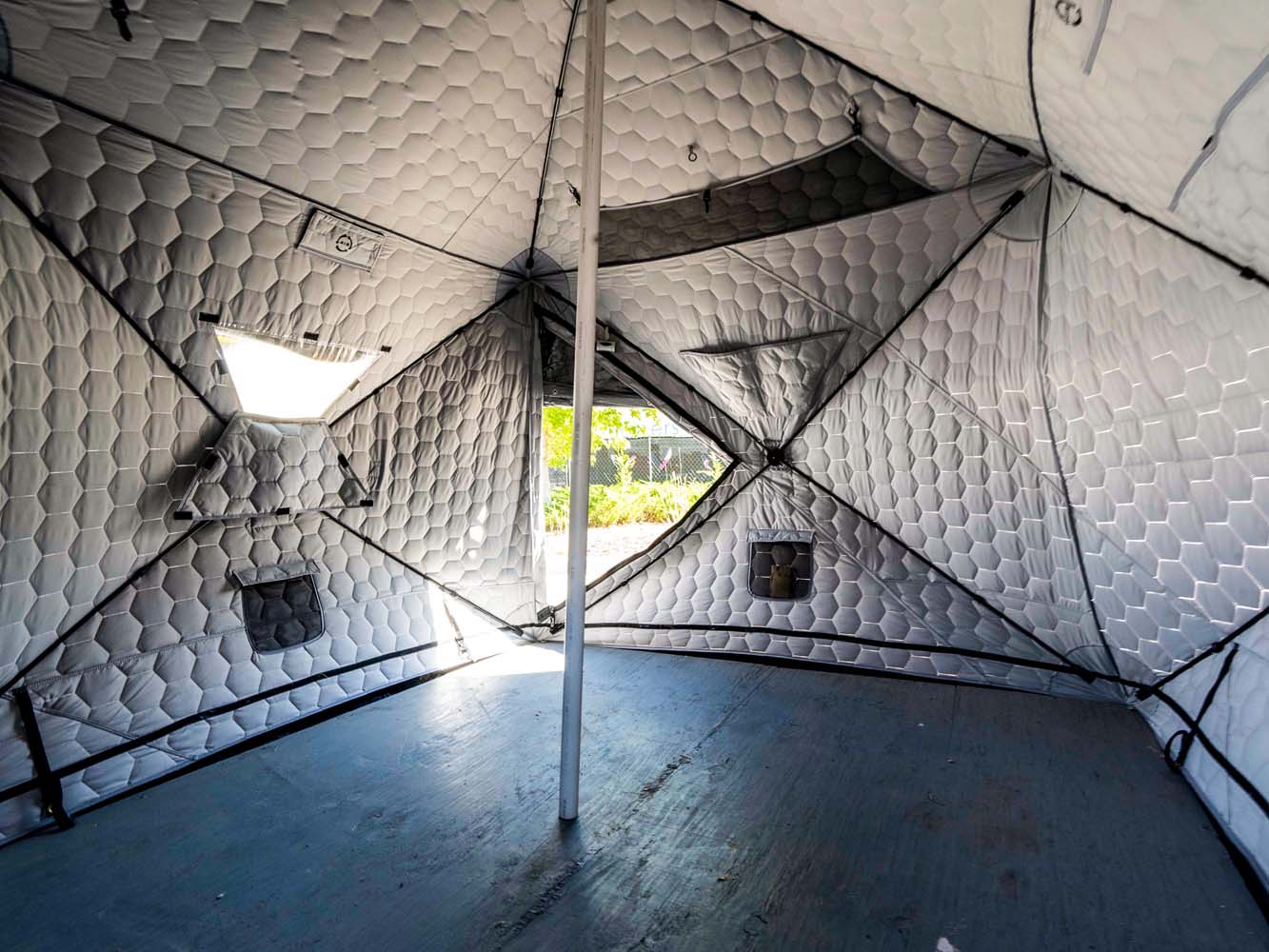
“It is literally their home,” Forker says.
Each tent has electrical hookups, allowing residents to charge their devices. And unlike many shelters, couples may stay together, and pets are welcome.
Residents can clean up in mobile showers and do laundry in facilities provided by another nonprofit, Showers For All. The Colorado Village Collaborative is trying to get funding for its own showers.
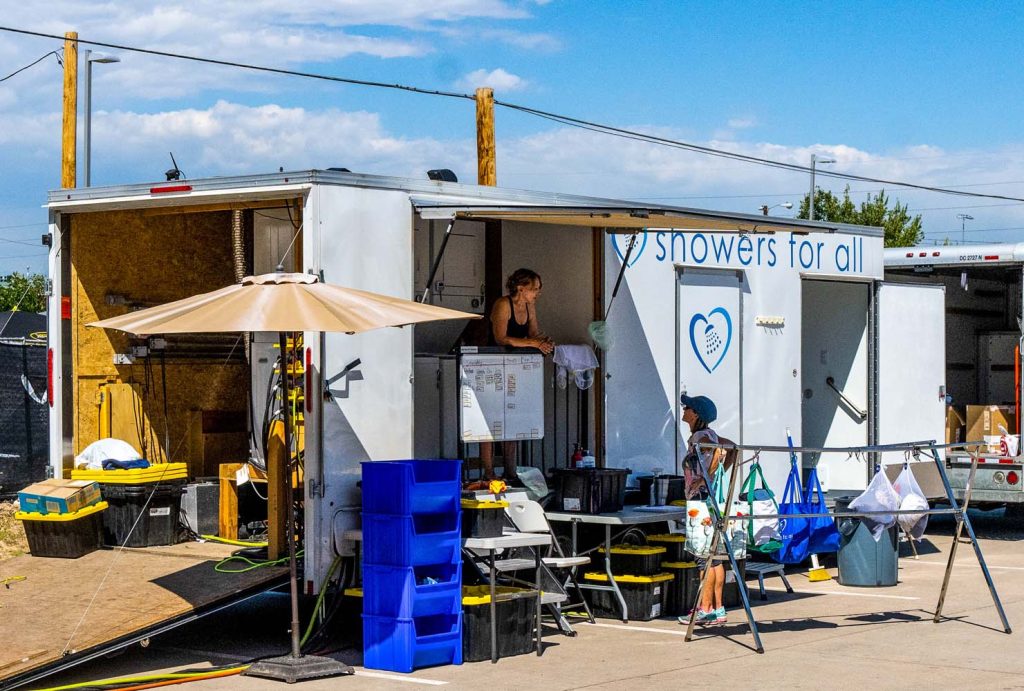
The campgrounds foster a sense of community, Forker says. Even when residents transition to permanent housing, some will still return to see their friends. “It’s amazing, the community that develops among people living together,” she says, “desperate people who didn’t know each other beforehand, looking out for each other.”
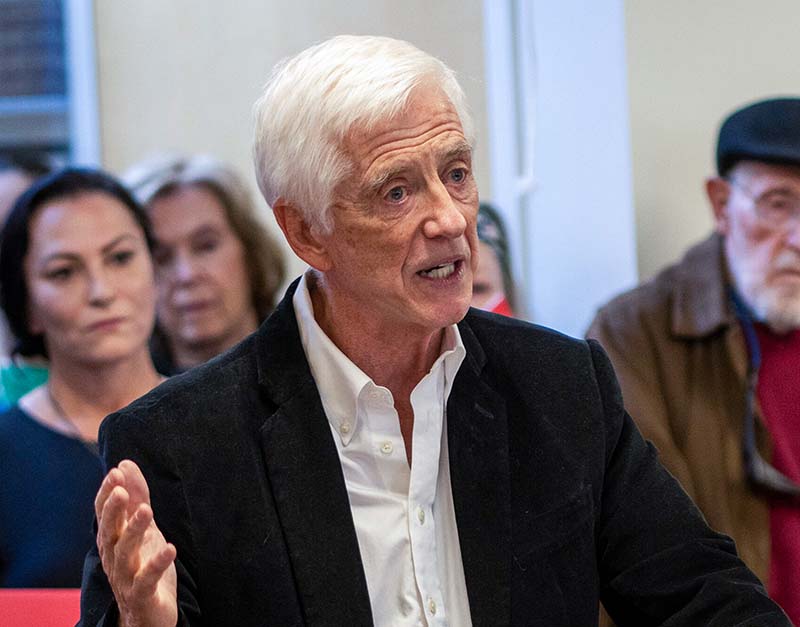
Legal homeless camps are likely to become a talking point during next year’s Salt Lake City mayoral race. Former Mayor Rocky Anderson vows to open one or more camps with toilets, showers, laundry facilities, food and caseworkers in an attempt to quell street camping.
Mendenhall was once skeptical of sanctioned camping, saying she feared the facilities do little to take a bite out of the number who sleep outside.
But she appears to be warming to the idea.
“We agree that shelter and housing options need to expand and acknowledge the capacity limitations regarding the housing market and existing shelter numbers. A well-managed, sanctioned encampment may be an excellent addition to the system, but must be led by state and countywide partners. Like every aspect of the state’s homelessness crisis, no city can take on this kind of project alone without additional support.”
— Erin Mendenhall
Niederhauser and his office, meanwhile, would rather see a village of shedlike shelters that offer noncommunal living in more permanent structures.
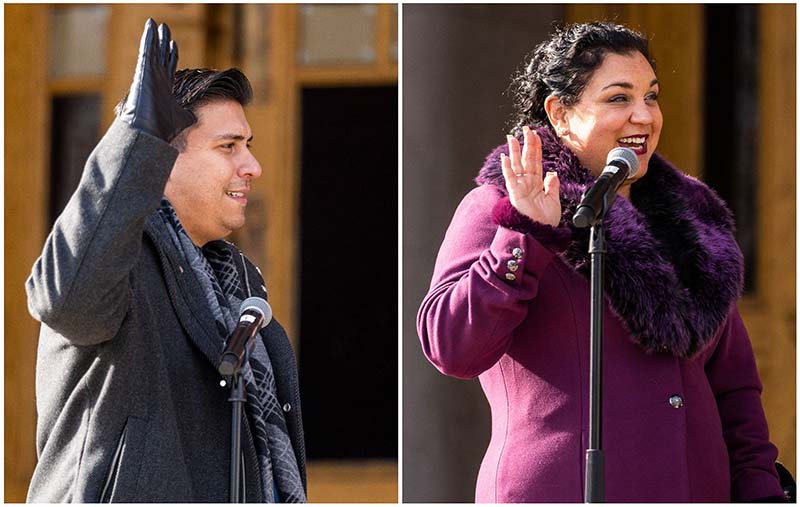
West-side City Council members Alejandro Puy and Victoria Petro-Eschler have publicly pushed for the camps, saying their constituents are exhausted by constantly dealing with illegal camping. Puy says a nonprofit, not the city, should be in charge of running a legal camp.
In Denver, the campgrounds are commonly met with fears early on, but many neighbors have come to embrace them. The sites are surrounded by privacy mesh, and the Colorado Village Collaborative commits to being good neighbors.
Despite concerns that allowing unhoused residents to congregate would lead to rampant crime, an analysis by The Colorado Sun found crime actually fell in areas where the camps operate.
Safe Outdoor Spaces is helping people get back on their feet.
One of them is Nick Wozny, who lived on the streets for years before moving into a tent at one of the legal sites. He says going to the legal campground was a step in the right direction. The next step is to secure a housing voucher. This year, the Safe Outdoor Spaces program helped 100 people transition out of homelessness.
